The Intel Core i7-3770 is perhaps one of the less glamorous CPUs Intel produces, especially compared to the i7-3770K, but why? It is still one of the fastest Ivy Bridge CPUs around, yet is eclipsed by the Core i7-3770K in coverage on the web. To be sure, the K variant has an unlocked multiplier and a 100MHz faster base clock. On the other hand, the non-K variant costs less and has features such as Intel VT-d and vPro making it interesting for a VMware ESXi test machine. Place this chip into a compatible Q77 or C206/ C216 motherboard, and one basically has a very inexpensive, fast server without ECC support but with remote management capabilities. Here is the Intel ARK comparison of the Intel Core i7-3770 and Core i7-3770K. Note, there are four main differences. The Core i7-3770 sells for about $35 less to boot. Let’s face it, there are a lot of folks who will never use the extra overclocking headroom of the K variant, or will not use it often, but who may want to turn that Ivy Bridge platform of today into a server tomorrow which makes the Core i7-3770 extra interesting. Let’s see how it performs with its slightly lower (100MHz) disadvantage in base clock.
Test Configuration
The trend with Z68 and Z77 chipsets are that the integrated GPUs are more than adequate for basic 2D output. If you are looking for a workstation with a lot of CPU need but where 3D GPU performance was not needed, then Intel’s on-die graphics are going to be “good-enough” for many users one one can use the third-gen PCIe slots for more I/O performance. With that being said, most Z77 buyers will still use discrete GPUs.
- CPU(s): Intel Core i7-3770
- Motherboard: ASUS P8Z77-V Pro
- Memory: 32GB (4x 8GB) G.Skill Ripjaws Z DDR3 1600
- Drives: Corsair Force3 120GB, OCZ Vertex 3 120GB
- Chassis: Norco RPC-4220
- Power Supply: Corsair AX850 850w 80 Plus Gold + PicoPSU 150XT with 150w power supply.
Intel Core i7-3770 Performance Tests
I will start off this section by saying that the standard test suite was built to test 1-8 thread single CPU systems such as the Sandy Bridge and Ivy Bridge Intel Xeon CPUs. With platforms like this one, I have been slowly altering the mix. Clearly, one would expect a different workload between dual Xeon E5-2690 CPUs and something found in a low-end, low-power server like a Pentium G630. Moving to the 16-64 core realm where the Xeon E5 series will play, that is becoming the norm today, I think that it will become ever more important to develop a second test suite.
Cinebench R11.5
I have been using Cinebench benchmarks for years but have held off using them on ServeTheHome.com because the primary focus of the site until the past few months has been predominantly storage servers. With the expansion of the site’s scope, Cinebench has been added to the test suite because it does represent a valuable benchmark of multi-threaded performance. I have had quite a few readers contact me about this type of performance for things like servers that are Adobe CS6 compute nodes and similar applications. Cinebench R11.5 is something that anyone can run on their Windows machines to get a relative idea of performance and both Ivy Bridge, Sandy Bridge and Sandy Bridge-EP systems run it well.
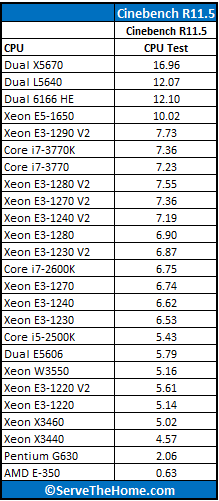
Neither a bad nor a great result. I think in most cases users will not be able to tell the performance difference between the Intel Core i7-3770 and the Core i7-3770K.
7-Zip Compression Benchmark
7-Zip is an immensely popular compression application with an easy to use benchmark.

Again, fairly good results with 7-Zip compression. Slightly slower than the Intel Core i7-3770K but the Core i7-3770 does hold its own.
TrueCrypt Encryption Benchmarks
With Intel’s focus on its AES-NI features TrueCrypt can look a bit skewed. Unlike some dubious drivers over the years that were optimized for benchmarks over real world application, Intel’s AES-NI feature does encompass the addition of specialized hardware. This specialized hardware has many practical uses and is becoming more supported. For example, users of Solaris 11 can utilize the AES-NI features to see much higher throughput on encrypted volumes. AMD has started offering AES-NI with their Bulldozer CPUs, and I will have those results added to future pieces. Let’s see how Intel does here.

Here we have virtually identical performance. For encryption heavy tasks, especially if they can use AES-NI, the extra spent in the K version will likely not be worth it.
Handbrake 0.9.5 x264 Encoding Benchmarks
I am still using Handbrake v0.9.5 simply because the Handbrake team does do some nice tweaking between annual versions and all of the other CPUs have been tested with v0.9.5. We will begin to collect data on v0.9.6 and start using that once we have critical mass. Either way, Handbrake is an extremely popular x264 encoding and transcoding application as it is very common practice these days to encode video for various tablets, phones and other devices. These transcodes also take a fair amount of time so having faster CPUs is important.
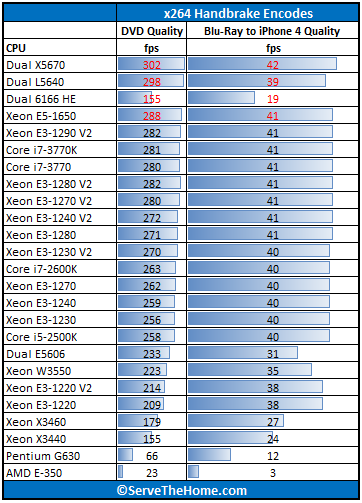
Again, very similar performance. So I am going to skip the discussion here. Still Ivy Bridge is making a strong showing.
Power Consumption
Intel’s move to 22nm is something hearlded as a new era in lower power consumption, especially with tri-gate technology and future process improvements that will increase that number. Using an Extech 380803 True RMS power analyzer which is a really nice unit that even records usage over time.
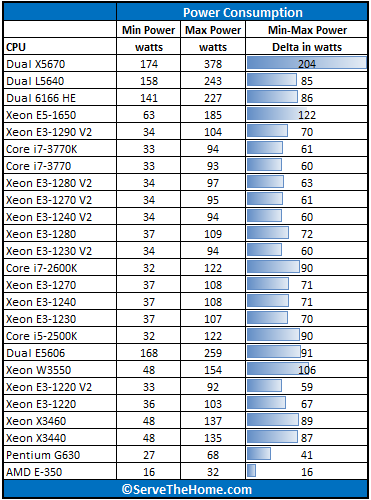
Here the Intel Core i7-3770 shows the standard 60w-ish power delta and max system power of under 100w. We are very used to these types of numbers from Ivy Bridge so no real surprises here. I did again want to point out that power consumption does vary a bit chip-by-chip but across several Ivy Bridge samples we see consistent results.
Conclusion
I think that the Intel Core i7-3770 has a lot of merit. First off, it is less expensive than the K variant and I do think that it offers enough performance for the vast majority of users. $35 these days is enough to upgrade from a 64GB to 128GB SSD or to add another few gigabytes of RAM so it makes sense. I do not use a lot of single threaded benchmarks, but both versions will do a max turbo of 3.9GHz at stock clock speeds so performance is fairly similar. That also probably explains why the 100MHz advantage of the K part (3.4GHz v. 3.5GHz base) was not overly pronounced. I also really like the fact that Intel includes VT-d, vPro and etc. on the non-K variant. I think that makes the useful server life much better on the non-K version, especially as Hyper-V in Windows Server 2012 can take advantage of the feature. At $50 less, I think the non-K part would be a very strong recommendation, especially with a Q77 motherboard. There is still a need for the Core i7-3770K as mine hits 4.5GHz without issue using stock voltages and without fancy cooling. At those speeds, there is a pronounced performance benefit in benchmarks. I would say that it is much less of a real world difference in speed especially since they use the same speed onboard GPUs. Bottom line, I like the Core i7-3770 as a long-term play, doubly so with a Q77 motherboard supporting VT-d.
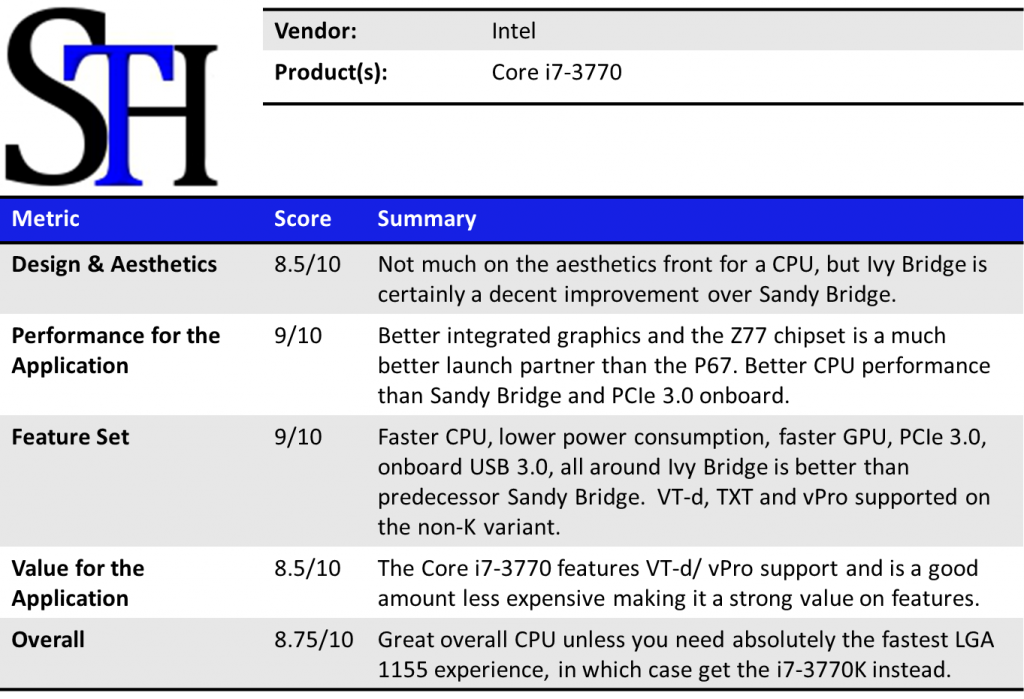

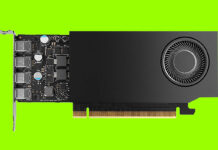
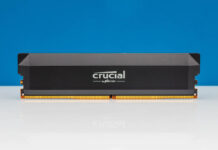
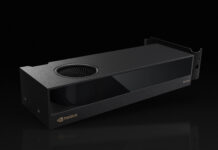
The E3-1245V2 seems to be pretty much the same CPU but with 100Mhz lower turbo speed. http://ark.intel.com/compare/65729,65719
Here in the UK it’s another £35 cheaper than the i7-3770, so quite tempting.
Ed, Great point. The E3-1245 V2 is about $45 less expensive in the US about $285 these days.
Intel Xeon E3-1245 V2 3.4GHz (3.8GHz Turbo) LGA 1155 77W Quad-Core Server Processor
That is Intel’s whole pricing strategy. A little bit of performance for a bit more money.
how the hell did you put 8 memmorry dims on a board with 4 slots… LOL this is 1 badd typo….
see your point 3: Memory: 32GB (8x 4GB) G.Skill Ripjaws Z DDR3 1600
Thanks for the catch. Should have been 4x 8GB not 8x 4GB.
Good review. Got me thinking bout this.